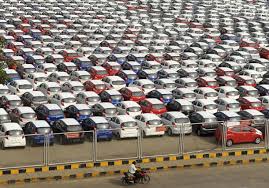An automobile policy aimed partly at attracting more international factories to Myanmar could be finalized by September but will not be presented to the parliament until 2016
24 Jul 2015
An automobile policy aimed partly at attracting more international factories to the country could be finished by September, but will not be presented to parliament until 2016, according to U Khin Maung Kyaw, a head of the working group drawing the policy.
“We’ve been drafting the policy for two months. We initially hoped to finish this month, but we can’t because there’s a lot of things still to discuss,” he said.
“We now hope to have it finished before September.”
The drafting group includes delegates from the Myanmar Engineering Society, car sales centres, showrooms, the Myanmar Automobile Manufacturers and Distributors Association and other experts.
Some of the main areas of discussion include left-hand versus right-hand-drive vehicles, and what incentives should be provided to foreign manufacturers which set up locally.
U Khin Maung Kyaw said foreign investors are keen on Myanmar’s prospects, particularly as the country has a lot of land and human resources.
“But they dare not invest because Myanmar has not a definite law or policy for the automobile industry,” he said. “They think they need a specific law to protect them.”
Neighbouring countries with similar population sizes have managed to attract vehicle manufacturers. Myanmar had previously attempted manufacturing its own brands of vehicles, but the results have been widely derided and the program was not considered a success.
“We intend to boost production of cars locally, even if we can’t export to other countries, as it will reduce the money we lost from exporting,” he said. “Our policy should also emphasise cars that are suitable for Myanmar, such as ones with 1.3 cubic centimetre engines.”
How this can be accomplished is still a matter of discussion. Some of the panel support policies to favour local manufacturing, though importers say this is unfair and there should be a level playing field.
U Khin Maung Kyaw said investors need incentives to build local factories, though this is partially opposed by car importers.
U Soe Tun, chair of the Myanmar Automobile Manufacturers and Distributors Association, said he reckons left-hand versus right-hand will continue to be a problem, with some favouring right-hand drive cars as they are easy to import from Japan, and others favouring left-hand-drive cars as they are more suitable for local roads.











